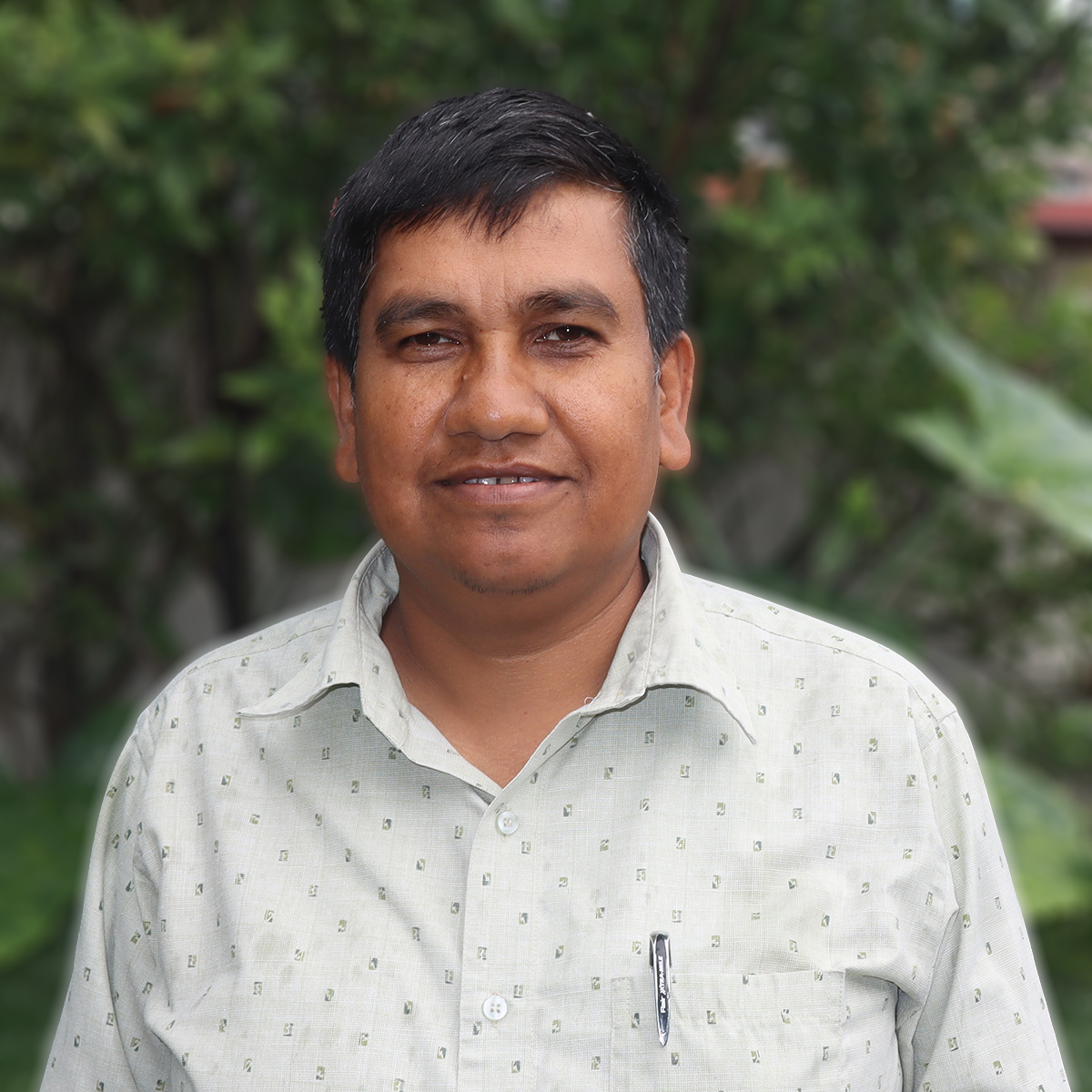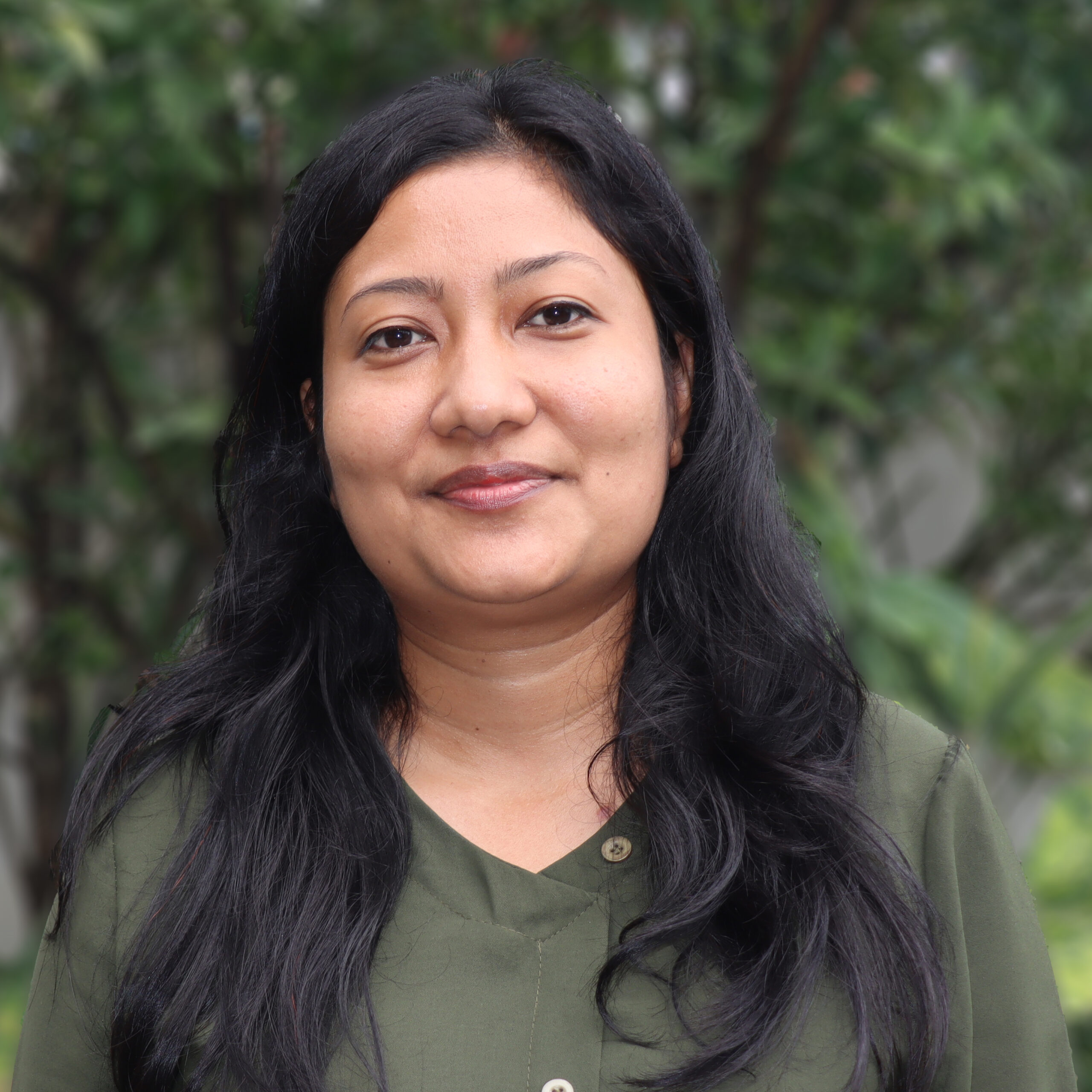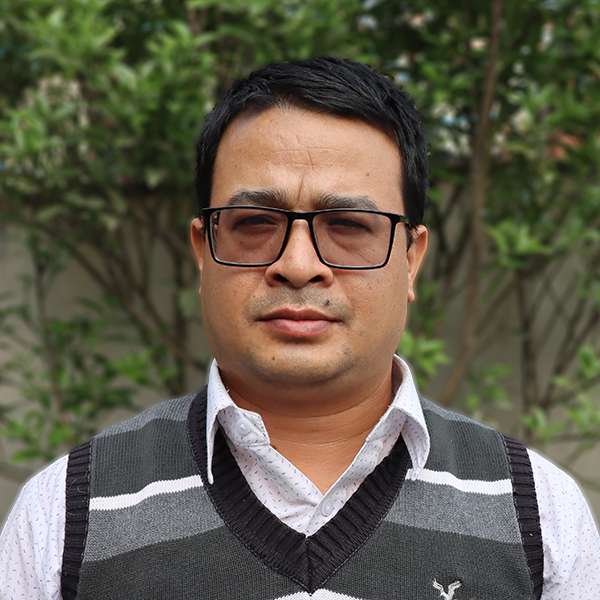Sushant Acharya, program director at Southasia Institute of Advanced Studies, holds PhD in Development Studies and master’s degree in Human and Natural Resource Management and in Anthropology. He is undergraduate in Forestry. In the PhD, his focus was on how high-value agriculture is reshaping gender relations in agriculture transition countries, and why Nepali agricultural exports is confined to India. His research interest lies in the interface of policy and practice in the governance of natural resources and their linkages with the livelihoods and well-being of rural people in uncertain climate and market contexts. His writings also reflect the issues of the poor, women, and disadvantaged and climate vulnerable groups and call for immediate and longer-term responses. Thematically, he is experienced in agriculture and forestry-based livelihoods, gender and social inclusion, local impacts of climate change, and agricultural value chains.
Sushant joined SIAS as a Research Fellow in 2016. Since 2020, he is working as a Researcher looking after projects on women’s economic empowerment, community forestry governance, and food security. His current position at SIAS also demands connecting roles among projects, bridging research with admin and finance, manage relations with funders, partners, and collaborators. Before joining SIAS, he spent over twelve years as a Development Practitioner working with two large projects in the Forestry sector in Nepal, namely the Livelihoods and Forestry programme and the Multistakeholder Forestry Programme. As short-term research consultant he worked for development partners notably Action Aid, DanChurch Aid, Oxford Policy Management, CARE, GIZ and others. Below is the selected list of publications credited to his name.
SELECTED PUBLICATIONS:
- Sharma, S. R. & Acharya, S. (2024). Nepalese Agriculture in Transition? High Value Agriculture and Changing Gender Roles in Eastern Nepal. In Ikejiaku, B. V. (Ed) The Capabilities Approach and the Sustainable Development Goals: Inter, Multi, and Trans Disciplinary Perspectives. Routledge.
- Matthys, M. L., Illien, P., Acharya, S., Amacker, M., Bieri, S., Musafili, I., & Sanesathid, O. (2023). The Role of High-Value Agriculture in Capability Expansion: Qualitative Insights into Smallholder Cash Crop Production in Nepal, Laos and Rwanda. The European Journal of Development Research, 1-20.
- Acharya, S., Pathak, K. & Pandey, C., L. (2021). Does High-Value Agriculure Build Resilient Livelihoods? Insights from the Study of Cardamom and Vegetable Farmers of Nepal. Journal of Forest and Livelihood. Vol 20 No. 1, pp 1-7
- Matthys, M.-L., Acharya, S. & Khatri, S. (2021). “Before Cardamom, We Used to Face Hardship”: Analyzing Agricultural Commercialization Effects in Nepal through a Local Concept of the Good Life. World Development. Vol 141
- Acharya, S., Sharma, S.R., Upreti, B.R. & Matthys, M-L. (2021). Why Nepal’s Main Agricultural Export Product, Large Cardamom, Does not Reach the World Market. Springer Nature Business and Economics. Vol 1
- Acharya, S., Upreti, B.R. & Subedi BP (2020). Changing Gender Dynamics through High- value Agriculture: A Case of Ilam District, Nepal. Nepalese Journal of Agricultural Sciences. Vol. 19, pp. 97-111
- Acharya, S., Subedi, R. & Shrestha, H. (2017). Need of Recognition of Traditional Institution and Use of Indigenous Knowledge in Climate Change Adaptation: A Case study in Mustang District, Nepal. Nepal Journal of Environmental Science. Vol. 4. No. 1, pp. 53-62
- Acharya, S., Manandhar, P., Nepali, P., & Sapkota, M. (2016). Prospects of Public Land Management and Issue of Tenure Security in Southern Terai of Nepal. New Angle: Journal of Social Science and Public Policy. Vol. 4. No. 1, pp. 99-113
- Acharya, S. & Upreti, B.R. (2015). Equity, Inclusion and Conflict in Community Based Forest Management: A Case in Salghari Community Forest of Nepal. Dhaulagiri Journal of Sociology and Anthropology. Vol. 9, pp. 209-223
- Acharya, S. & Khatri, D. B. (2013). Payment for Watershed Services as a Tool to Resolve Drinking Water Problem of Municipalities: A Case of Baglung Municipality. In Proceedings of the International Conference on Forests, People and Climate: Changing Paradigm, pp. 284-296 Pokhara
- Acharya, K. P., & Acharya, S. (2007). Small Scale Wood Based Enterprises in Community Forestry: Contribution to Poverty Alleviation. Banko Janakari. Vol. 17, No 1, pp. 3-10







